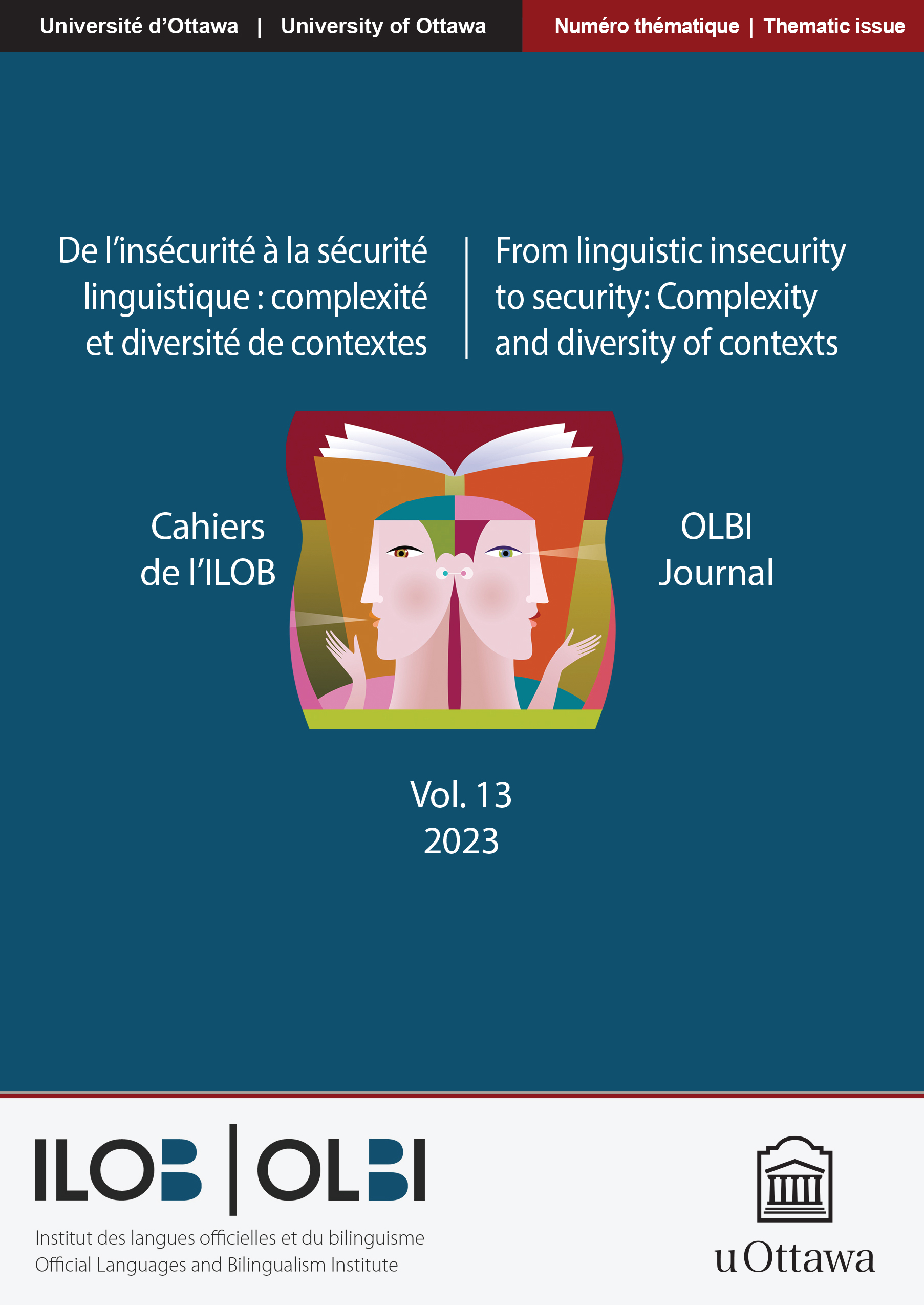L’enseignement de la variation phonétique du français au Cameroun : dérives et conséquences en termes d’insécurité linguistique chez les élèves
DOI:
https://doi.org/10.18192/olbij.v13i1.6619Keywords:
language didactics, accent, didactic transposition, linguistic insecurityAbstract
In accordance with the recommendations of the meeting on the teaching of French in french-speaking Sub-Saharan Africa held in 2003, Cameroon has just decided to teach French variation. The objective of this paper is to show that the didactic practices currently used to transmit phonetic variation are likely to install learners in linguistic insecurity. Indeed, insteed of initiating learners to decrypt their interlocutor’s accents for better communication, the practices analyzed seem to focus more on identification and linguistic description. This work will show that these practices tend to more transmit to students stereotypes already known about French accents in Cameroon, which generally aim to axiologically classify speakers, with potentially negative consequences for learners’language security. From a didactic perspective, this paper analyzes the French language Textbook at the second cycle in Cameroon and a lesson given to the students of Terminale (Upper six). This study adopts a qualitative approach.
Downloads
Published
Issue
Section
License
Copyright (c) 2023 Gilbert Daouaga Samari

This work is licensed under a Creative Commons Attribution 4.0 International License.
Authors who publish with OLBI Journal agree to the following terms:
- Authors retain copyright and grant the OLBI Journal (OLBIJ) right of first publication with the work simultaneously licensed under a Creative Commons Attribution License that allows others to share the work with an acknowledgement of the work's authorship and initial publication in the OLBIJ.
- Authors are able to enter into separate, additional contractual arrangements for the non-exclusive distribution of the OLBIJ's published version of the work (e.g., post it to an institutional repository or publish it in a book), with an acknowledgement of its initial publication in the OLBIJ.
- Authors will not simultaneously submit the same piece of work for possible publication to more than one academic journal at a time.


